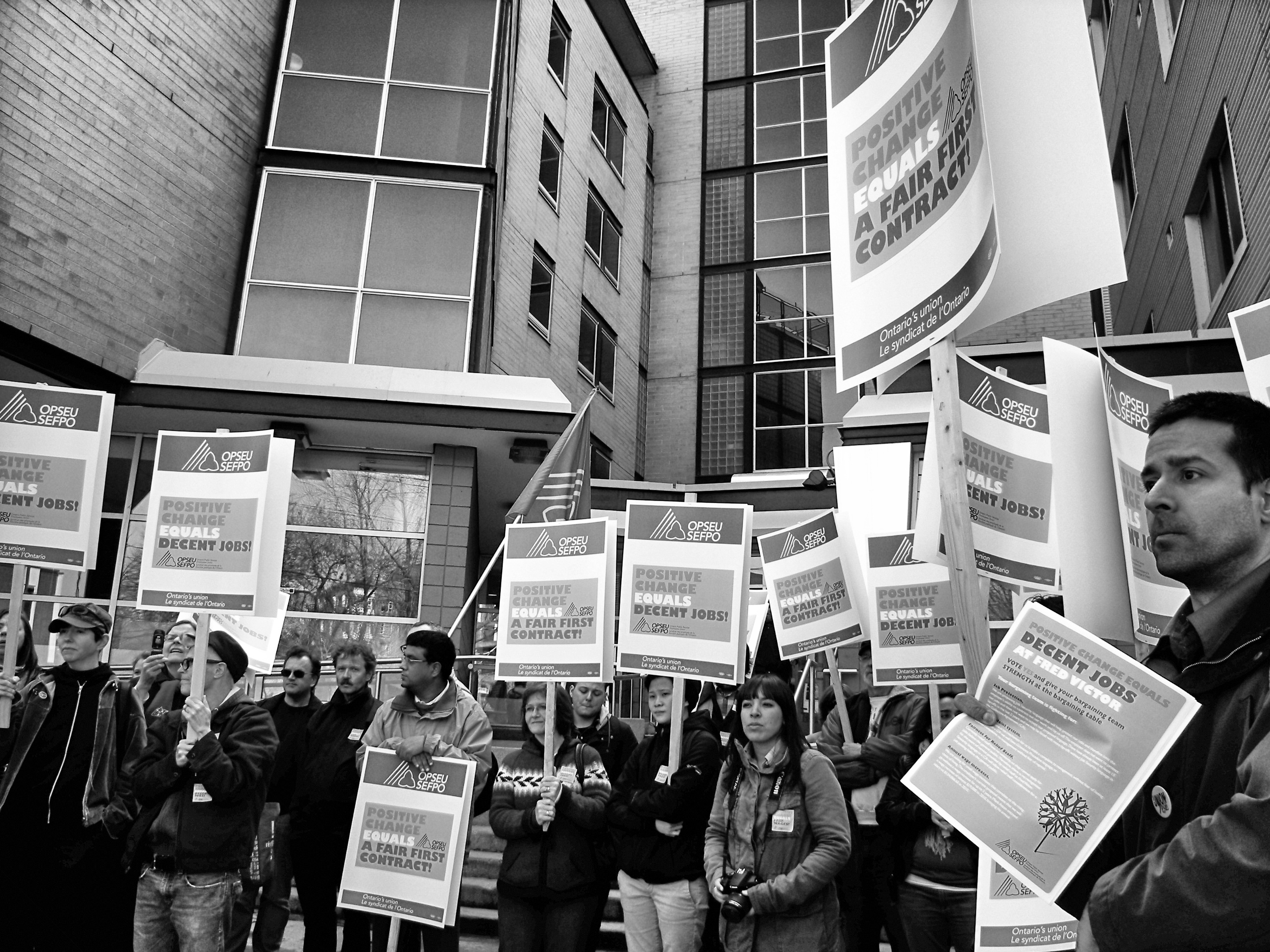For six months, he’s been a client of the Fred Victor Centre. They helped him turn his life around. Got him housing. Helped him structure his life.
Found him programming to deal with his anger and drug and alcohol addictions.
“If I hadn’t found Fred Victor, I’d still be alive but in a state of depression and homeless,” he says.
Click here to see more photos from the rally.
Mauricio Arenas now lives in subsidized housing. He still struggles financially. But without the Fred Victor Centre workers, his life would a lot more difficult and chaotic.
So he’s not sure where he and others in similar situations will turn if the Ontario Public Sector Employees Union (OPSEU) Fred Victor workers call a strike or are locked out by their employer next week.
Rather than strike or be locked out, they still want to bargain with their employers. A bargaining session has been scheduled for March 22.
In the meantime, 75 per cent of the workers voted in favour of authorizing their bargaining team the right to call a strike if an agreement cannot be reached.
“We’re fighting for a first fair contract,” says Idil Mussa, a bargaining team member for Local 509, at a lunch hour rally held outside the Fred Victor Centre on Queen Street West in Toronto on March 15.
The Fred Victor Centre is a social services organization providing supports and services to homeless and low income people in Toronto.
“If we’re fighting for our clients for justice and equity, we should have it for ourselves too.”
OPSEU Regional Vice President Nancy Pridham works at the Centre for Addiction and Mental Health (CAMH) and understands the kind of work OPSEU workers do at the Fred Victor Centre.
“You negotiate and advocate on behalf of some of the most vulnerable people in the province of Ontario,” says Pridham.
“Without you, people would have a difficult time navigating the system.”
Like all unionists, Local 509 are simply looking for respect, equality and dignity in their workplace.
“Offering people zero per cent over five years is disrespectful,” she says. “If workers become poorer, then the people that we service and assist are all going to become poorer as well.”
Fourty years ago John Cartwright, now the president of the Toronto and York Region Labour Council, used to walk along Queen Street West to his first job as a cabinet maker, only a couple of blocks away from the Fred Victor Centre.
He recalls walking past the line of men waiting to get into the Fred Victor Centre at the end of the day. A world he couldn’t possibly understand.
“It’s terribly disappointing to hear that you are not being offered even to keep up with the cost of living,” says Cartwright, “let alone to reflect the kinds of conditions that you have at work and the skills and education that you bring to this work.”
Every day, workers challenge the systems that create barriers for their clients.
“It’s stressful work,” says Jennifer, a Local 509 member.
They work hard. Come from places where many of their clients come from. Their jobs are demanding. Not everyone can cut it on the front lines.
But now they face a new fight. One they hope will finally bring them some justice too.




